
Exciting new series on “Voice, Body and Movement for Lawyers – How to connect with the jury and find Justice Through Dramatic Technique!”
Click here to find out more
The debate is over: there is no doubt that Parental Alienation exists. However, while an overwhelming number of courts around the country have acknowledged the phenomenon of parental alienation, some detractors continue to create a smokescreen of “controversy,” both in professional literature and in courts. Regardless of how one labels the phenomenon—call it parental alienation, brainwashing, programming, or pathological parenting—American family courts have come to a conclusion that parental alienation exists and needs to be addressed. As one trial judge wrote: “Anybody old enough to drink coffee knows that embittered parties can and do manipulate their children.”
Key topics to be discussed:
• What parental alienation is and is not.
• How the courts have defined the phenomenon
• How family court judges, when presented with proper evidence, have ordered appropriate interventions
• How to prove a case of parental alienation in court
• How to defend against false allegations of parental alienation
• Legal interventions -- what works and what doesn't
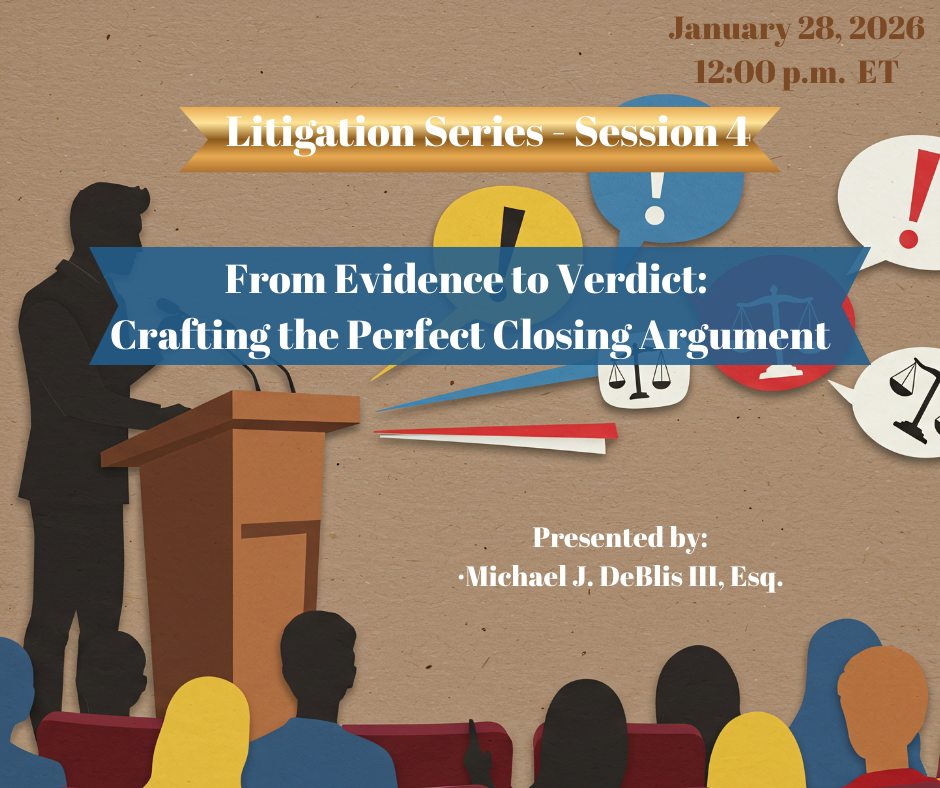
This program examines the strategy and artistry of closing argument, positioning it as a lawyer&rsqu...
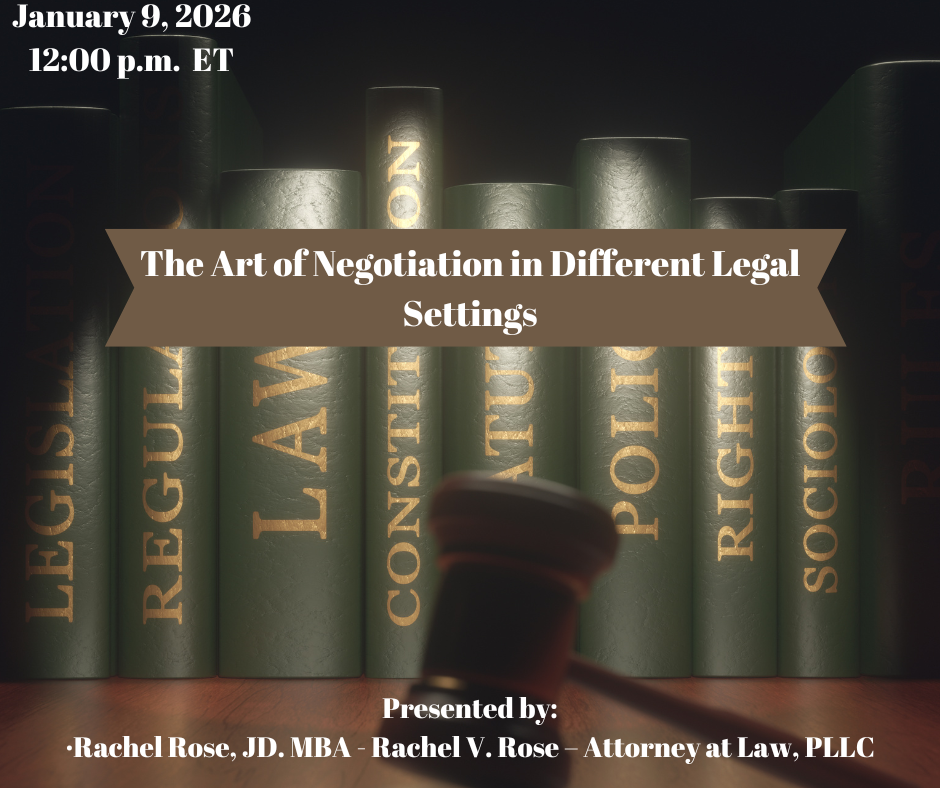
Different situations call for different tactics. Sometimes, the parties are both amenable to seeking...
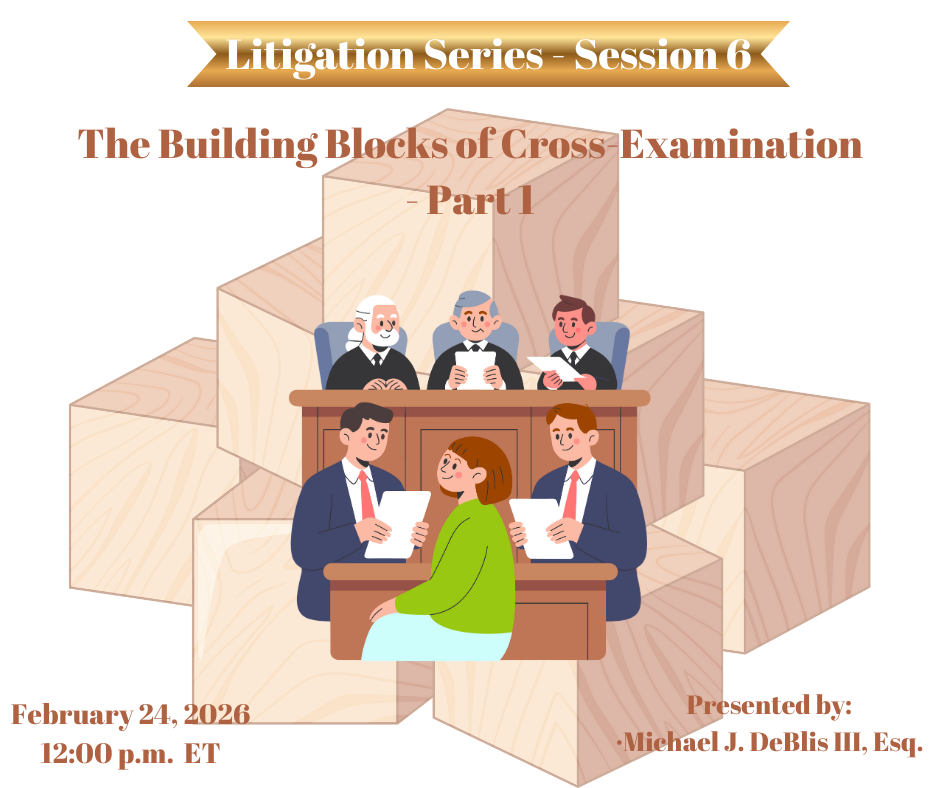
Part I introduces the foundational principles of cross?examination, explaining how lawyers must meth...
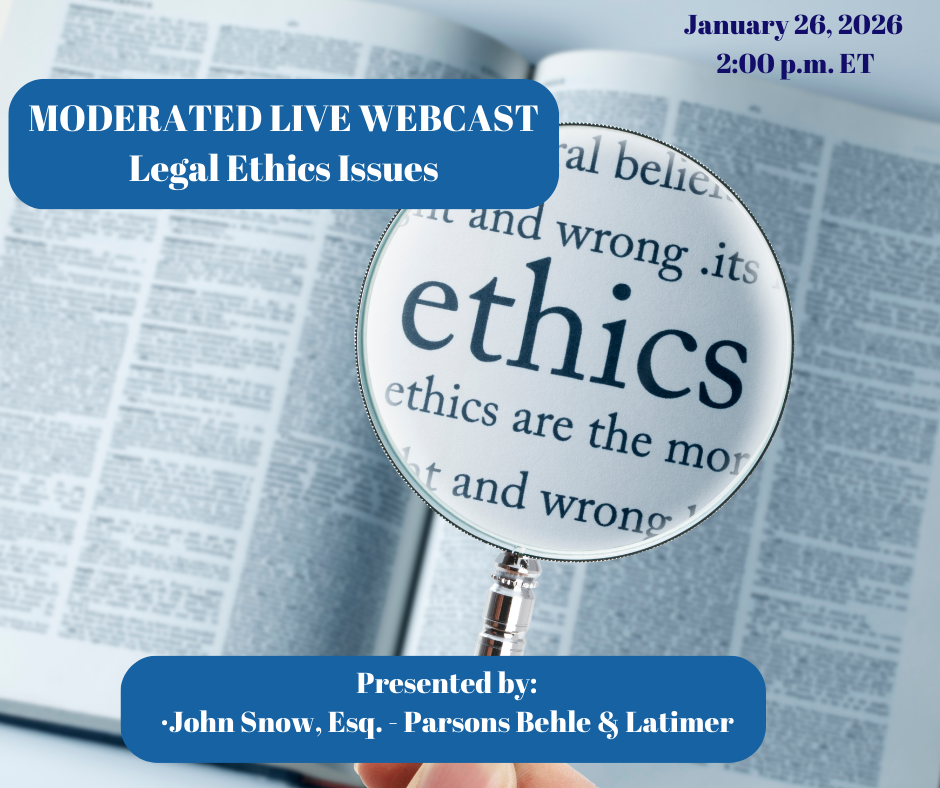
Protect clients and yourself by knowing some of the more common ethical issues that can affect your ...

MODERATED-Session 8 of 10 -Mr. Kornblum, a highly experienced trial and litigation lawyer for over 5...
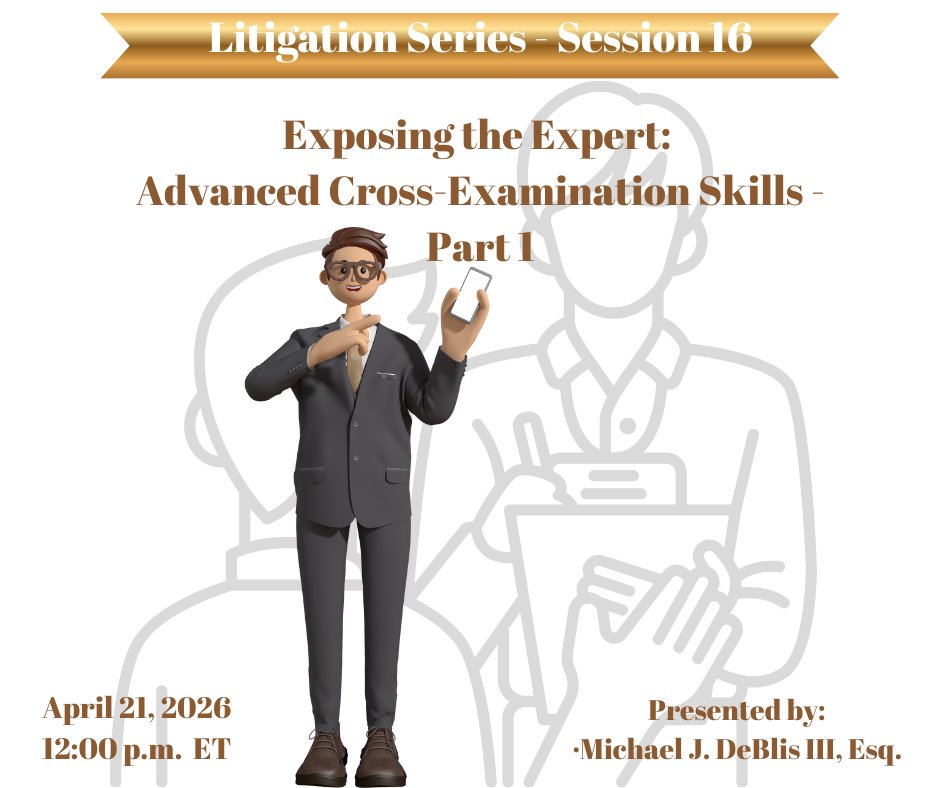
Part 1 - This program focuses specifically on cross?examining expert witnesses, whose credentials an...
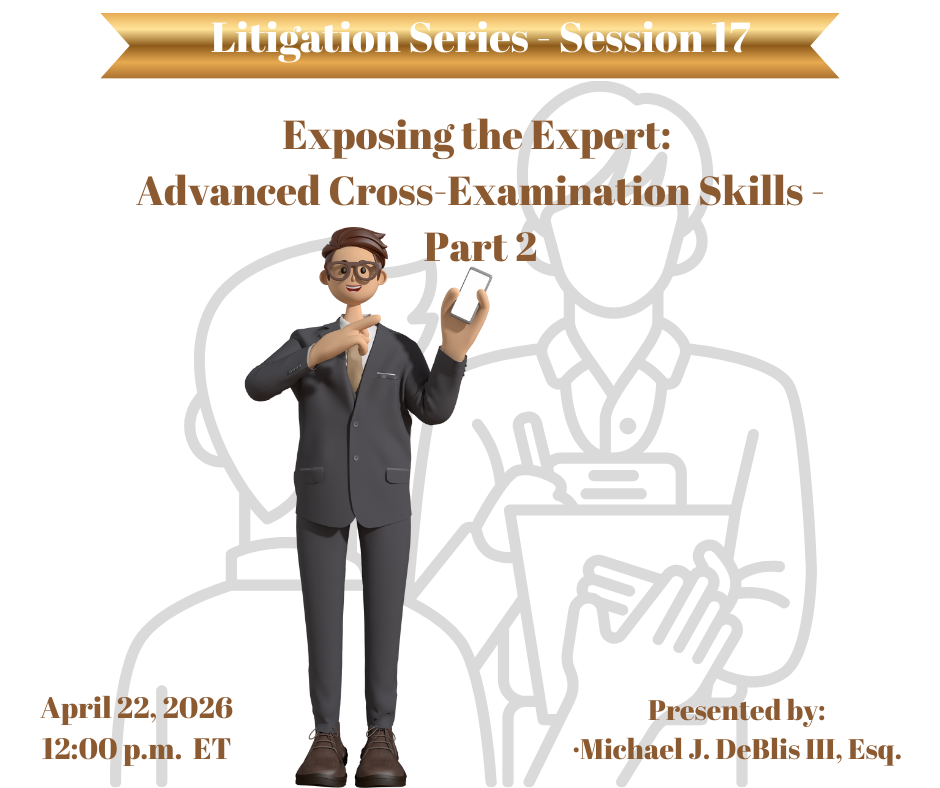
Part 2 - This program will continue the discussion from Part 1 focusing specifically on cross?examin...
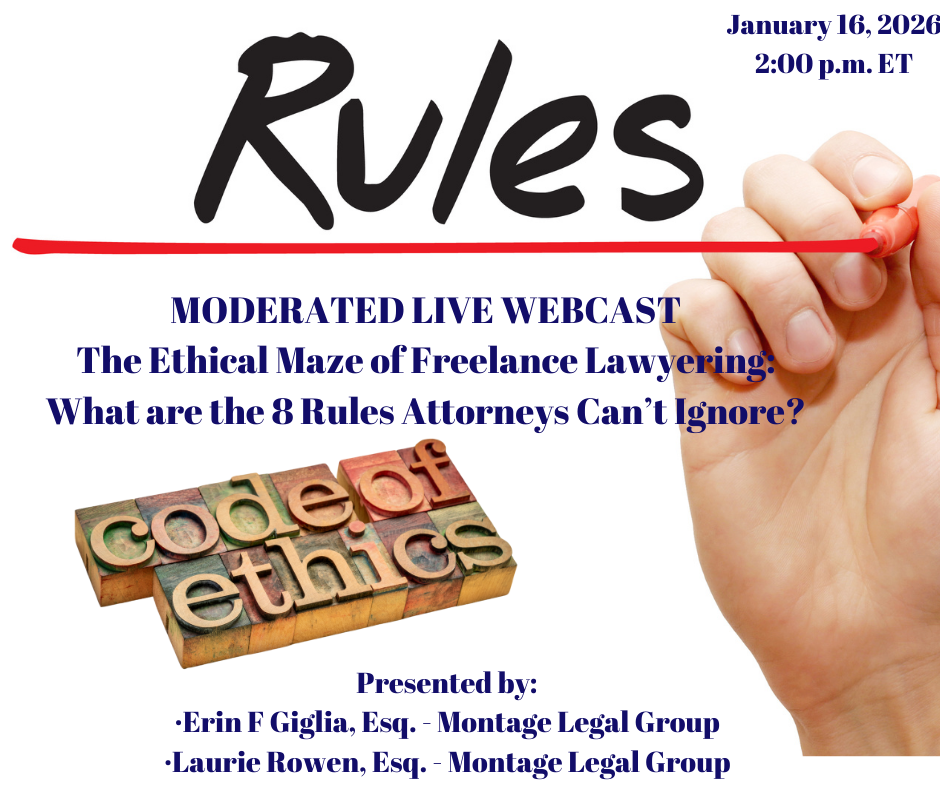
As lawyers, time is our most finite resource. We have duties to our clients to ensure that their mat...
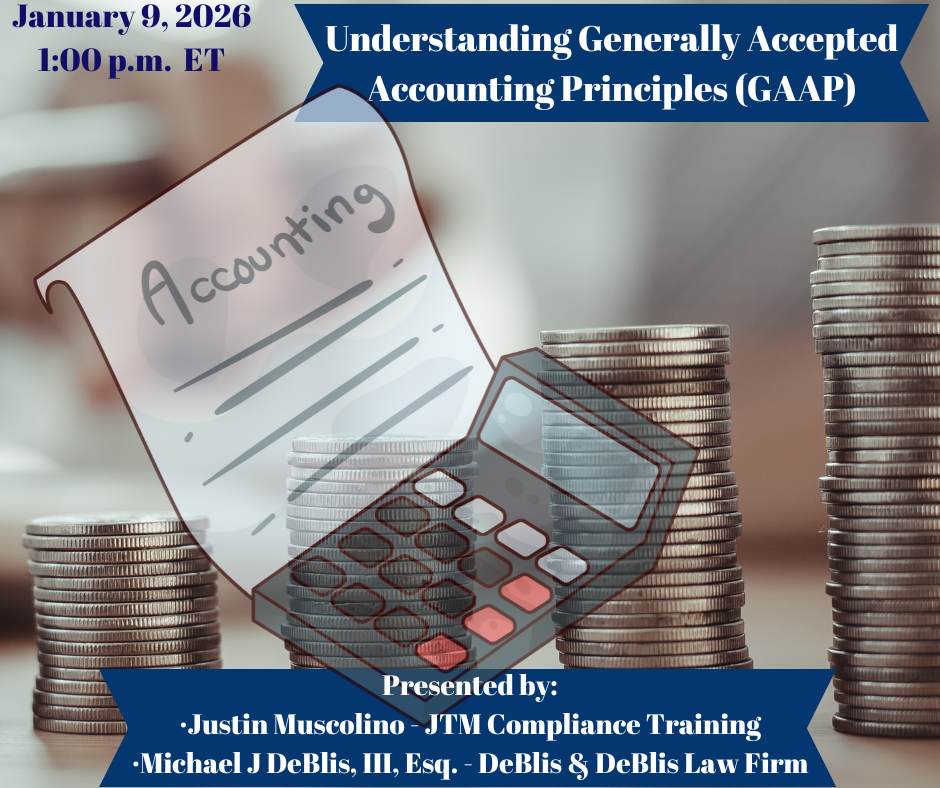
This attorney-focused training provides deeper insight into GAAP’s framework and its legal app...
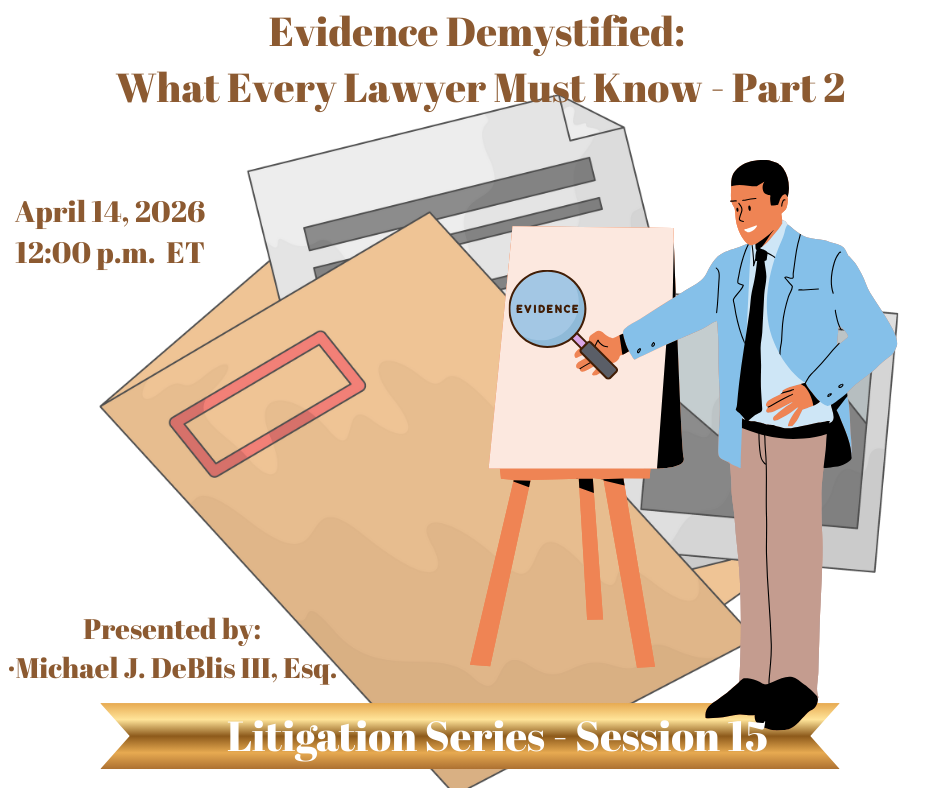
Evidence Demystified Part 2 covers key concepts in the law of evidence, focusing on witnesses, credi...